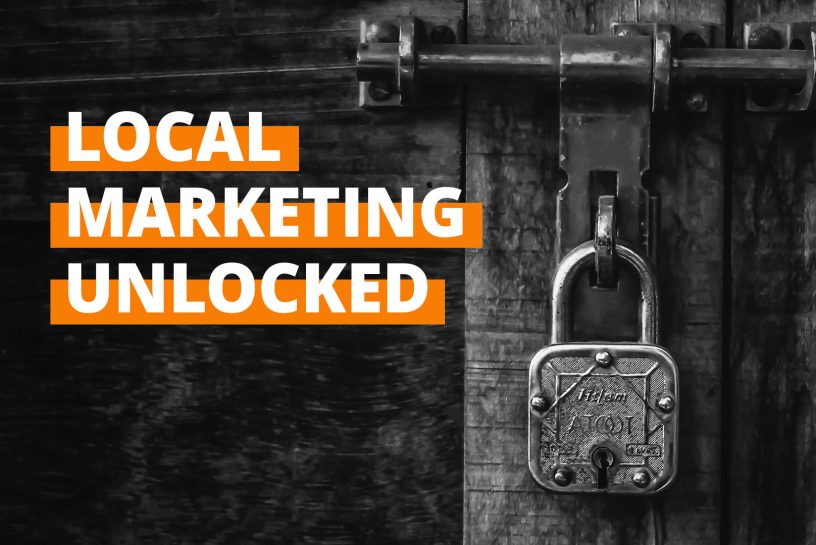Would you like to know how to make your hospo business the talk of the town? The secret sauce is local marketing. In short, by focusing on the community around you, you can build a loyal customer base and outshine the competition. Let’s explore how you can tap into the local marketing landscape and make your mark on Google Maps.
What is Local Marketing?
Local marketing is more than just a typical strategy – it’s a method of forming and nurturing connections within your community and reaping the benefits of it. By focusing on reaching customers within a specific geographic area, typically close to your business, and tailoring your marketing efforts to their preferences, you can engage with the right audience directly and make your business an integral part of their local ecosystem. This approach not only boosts your visibility among the people most likely to visit your establishment but also strengthens your connections within the community, enhancing customer loyalty and local reputation.
Local marketing, in a nutshell, is about getting your business found by the right people who are searching for your products or services near your business. It is about maintaining a relationship with existing customers. It is also about actively encouraging community support through specific actions (e.g. asking them to leave us reviews or share our updates).
Such “specific” actions help maintain relationships with existing customers and attract new ones, through the power of word-of-mouth marketing.
Additionally, it will help by improving your rankings in search results, thereby making your business more discoverable and frequented. It’s a cycle of mutual benefit that starts with genuine community engagement.
1. Google Business Profile Optimisation
What is Google Business Profile Optimisation?
Your Google Business Profile is your digital storefront. It’s the first thing locals see online when they search for hospitality services in your area, for example, on Google Maps.
Why is it important?
A well-optimised profile increases your visibility in local search results.
What to do?
- Claim and verify your business listing.
- Complete every section of your Google Business Profile with accurate details.
- Incorporate local keywords into your business description.
Bonus tip! Use the name of landmarks in your neighbourhood, street names, and area names as "local keywords".
How to do it?
First, read this article to understand how Google Business Profile works
Then.
- Sign in to Google Business Profile.
- Ensure your business information, including name, address, phone number, and hours, is up to date.
- Add as many photos of your establishment as possible, including your team, the environment, exterior, interior, and the services you offer.
Bonus tip! Photograph what people see first at the address when they arrive at your business.
- Regularly post updates within your Google Business Profile. You can post special offers to keep your profile fresh and engaging.
2. Local SEO
What does Local SEO mean?
Why is it important?
Local SEO means tailoring your online presence to rank higher for local search queries. This can include optimising your website, Google Business Profile, Tripadvisor account, and OTA sites (Online Travel Agents – Booking, Airbnb, Trivago and so on).
This drives targeted traffic to your website from people searching for particular services near them. In other words, your services will rank appropriately and appear in online searches to the right audience.
What to do?
- Incorporate local search terms into your website.
- Understand how, and read this: Where to put keywords on the website?
Create location-specific pages if you serve different areas.
E.g. your H1 page title can be named as: “locally roasted coffee in the heart of Sydenham, Christchurch.”
Use local structured data markup.
How to do it?
- Research local keywords using tools like Google Keyword Planner.
How to do keyword research for website SEO? read the article.
- Update title tags, meta descriptions, and content with local terms.
- Embed a Google map on your contact page.
3. Community Engagement
What does this mean?
It’s all about building relationships with locals through active participation in community events and activities.
Why is it important?
Engaging with your community builds brand recognition and loyalty.
What to do?
- Sponsor local events or sports teams.
- Host your events, e.g. special dinners, wine tastings, small exhibitions, galleries, workshops, cocktail parties or networking events.
- Partner with other local businesses for cross-promotion.
How to do it?
- Reach out to community organisers to offer sponsorship.
- Use social media to promote and organise your events.
- Develop partnerships with businesses that complement yours, like local wineries or tour operators.
4. Local Reviews
What do local reviews mean?
Local reviews are testimonials from customers in your area, shared on popular platforms.
Why is it important?
Positive local reviews build trust and can influence potential customers’ decisions.
To this day, personal recommendations, or reviews, are still the strongest marketing message ever.
What to do?
- Encourage satisfied customers to leave reviews.
- Respond to reviews, both positive and negative.
- Monitor your reviews regularly.
Bonus tip! Reply especially to negative, even 1-star reviews. When forming your reply, consider how your answer could help a third party who will read it.
How to do it?
- After a customer’s visit, create a review request campaign via email or SMS. Use software. Comply with GDPR.
- Train staff to remind guests to leave reviews.
- Set up alerts for new reviews to respond promptly.
Bonus tip! Gamify your feedback-requesting processes with your colleagues. Incentivises staff members with bonuses: Names mentioned in reviews will receive a bonus (gift) each time.
5. Local Ads on Google or Social Media
What do local ads mean?
These are paid advertisements targeted at users in a specific geographic location through online searches and social media platforms.
Why is it important?
They allow for precise targeting, putting your business in front of locals who are most likely to visit.
What to do?
- Define your target audience’s location. Push out an advertisement within a specific radius (e.g. if walking distance is important in your case, use a max. 1km radius.)
- Create compelling ad content.
- Set a budget and track your ad performance.
How to do it?
- Use social media platforms’ advertising tools to set up geo-targeted ads. You may do geo-targeted ads in Meta or Google Ads.
Read this article about Facebook Ads vs Google Ads: What is the difference? - You may design more creative ads that showcase local relevance, such as featuring local produce, special menu, a current package deal or an upcoming event. Read an article about How to write great headlines for ads.
- Review analytics to understand which ads perform best and refine your approach accordingly.
Conclusion
Adopting the above steps and embracing local marketing strategies is a powerful way to elevate your hospitality business within your community. By optimising your Google Business Profile, leveraging local SEO techniques, engaging actively with the community, managing local reviews, and utilising targeted local ads, you set the stage for increased visibility and foot traffic.
Each of these steps helps to increase your business’s online visibility, making it a go-to destination for both residents and visitors.
Remember, the goal is to make your business not just a place people visit but a place they remember and return to.
Start implementing these strategies today and watch how your business becomes the talk of the town!
Follow this blog as I share hands-on marketing tips with readers that I find helpful.
Thank you for reading my post.
I am Shopi.
The No B.S. Marketing & Design Guy for Hospitality Businesses.
Original photo by Iqbal farooz on Pexels & modified by me.





